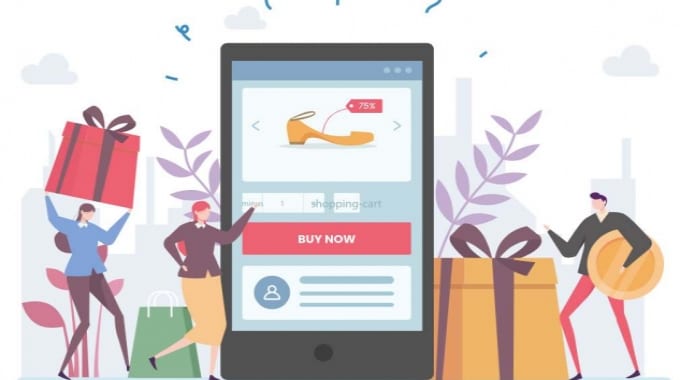I typically buy my favorite perfume at a retail store near me. Unfortunately, the fragrance has been discontinued and my go-to retailers are out of stock. So, I shopped online. The first time I ordered from a third-party site, I was duped. While the packaging was sealed and very similar to the ‘real’ perfume, the bottle was a slightly different color and the screen-printed type was a different typeface. Then the cap fell apart. Most importantly, it didn’t smell right.
As a designer and brand strategist in labels and packaging, I know that counterfeit products cost the economy billions a year. Fortunately, I know how to look for signs of counterfeiting.
The next time I ordered it, I noticed the packaging was produced on a high-quality substrate with 4-color and a spot metallic ink. It was loaded with finishing and embellishments: dull varnish overall, spot gloss varnish to highlight images, and embossing. From the packaging, this looked and felt promising. Next – and don’t laugh – I used a loupe to check the type, registration and verify the fifth spot color. Finally, I opened the bottle, and it smelled like it was supposed to. This was the real deal.
Most consumers don’t think ‘fake’ – they think the brand has lowered its standards.
I share all this with you because I’m not just a consumer who doesn’t want to be taken for a ride. I’m a designer who knows how vital it is to a brand’s equity, reputation and revenue for their customers to have confidence in the authenticity of their product. The typical consumer – who likely doesn’t have a loupe nearby – may not realize they’ve purchased a fake but instead thinks that the brand has lowered its quality or used inferior ingredients. So they stop being a customer. They switch brands. They tell their friends and share their disappointment on social media.
It may never occur to them that the brand is the victim of a security breach.
Counterfeiting has reached 1.2 trillion USD worldwide, with yearly losses estimated at more than 98 billion USD, from both offline and online retailers, according to a report by Research and Markets.
So how do brands protect their reputation, their equity and their revenue? How do they guard against the counterfeiters? They turn to their print provider to understand today’s options in security printing.
Counterfeiters attack in a variety of ways, and the first line of defense is always packaging. There are a variety of authentication methods and tamper-proof packaging options; as a print provider, you can help your clients determine the best combination of these methods to protect their brand.
Two types of security measures
There are two primary types of security measures. The first type of brand protection falls under the category of overt security. Overt security elements are visible to consumers; we know they are there. When designing, I may include a high-quality substrate with embellishments and special effects such as embossing, metallics, holographics, and/or die-cuts. These are good strategies for creating a unique brand ‘signature’ that brand loyalists are likely to recognize and remember, but they also produce a label or packaging that is difficult to replicate. The more intricate a brand makes its packaging, the more challenging – and costly – it is to counterfeit. Other overt protections include serialization, guilloche marks, tamper-proof labels, security slits, and tactile printing, such as intaglio.
Covert security elements are hidden from the consumer. Examples include invisible or UV inks – which can only be seen with a black light – and microtext (1-point type that requires a trusty loupe). Microtext may include the brand name, a message, or even a serial number if it’s printed digitally. Other covert elements include invisible watermarks, ink taggants and infrared ink. A counterfeiter trying to replicate a brand’s packaging wouldn’t know these security measures are in place.
Covert elements are typically used for tracking and tracing. That is, when authentic products leave the authorized supply chain and are sold on the grey market or in geographical areas where the brand doesn’t do business, that costs the brand revenue – not to mention potential damage to reputation and equity.
When it comes to pharmaceuticals and nutraceuticals, it can cause customers physical harm or worse. When packages are equipped with a ‘tracker’ such as a QR code (whether overt or covert), the company can order the errant product and determine where in the supply chain the product was last scanned and thus diverted.
Brand security experts recommend ‘multilayering’ – combining covert and overt brand security elements. Perhaps an embossing and foil stamping or metallic ink – that’s your overt – combined with some microtext and an invisible watermark or UPC code fingerprint – that’s your covert.
When it comes to brand security, the details matter. Cost is relative when the risks are high to your brand equity, reputation, customer safety and loyalty, and ultimately, revenue. Brands can’t afford to be so focused on the unit cost that they miss what counterfeits could cost them.



